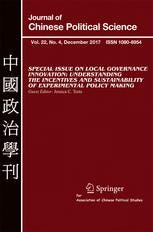More on academic publishers censoring for China: an exchange with Palgrave about its parent SpringerNature

Back in November 2017, Ben Bland reported in the Financial Times that the massive publishing conglomerate, SpringerNature, had cut some 1000 articles from two of its journals, The Journal of Chinese Political Science and International Politics, at the behest of the Chinese government. As with the Cambridge University Press scandal that came out earlier, the Chinese importer asked SpringerNature to cut articles from journals on the basis of keywords (“Tibet,” “Xinjiang,” “Cultural Revolution,” etc.). Cambridge eventually backed down after an international outcry (see my open letter here on Medium); later LexisNexis released a statement that said it had been approached to make similar cuts at the source to its database Nexis; in response it removed Nexis and LexisNexis from the Chinese market (leaving Lexis). Taylor & Francis, another commercial academic publisher, has informed me through the editors of Central Asian Survey that it will not razor articles from its digital versions of journals for China; if China tampers with them at the receiving end, there’s nothing the publisher can do, but T & F will not produce a bowdlerized version of its journals for the Chinese market. I think the responses of Cambridge (ultimately), Lexisnexis and Taylor & Francis are each appropriate (assuming they are as we have been told, and they don’t involve secret compromises that haven’t come out yet).
SpringerNature, on the other hand, quite shamelessly is holding the line on its decision to censor journals at the source on behalf of China. In its statement, the corporation parrots China’s official rationale that it is simply complying with local regulations. A petition calling for academics to refuse to do peer review or similar consulting for SpringerNature and other publishers based outside of China that censor academic publications on behalf of the PRC now (as of December 22, 2017) has over 100 signatures.
The American Historical Association is holding its 2018 annual meeting in Washington D.C. I am on the program, and received a couple requests from editors of presses with a presence at the conference to meet and discuss my field, any books I might want to write for them, and so on. This is usual practice. One of the editors who contacted me represents Palgrave Macmillan, which is part of the SpringerNature conglomerate. I emailed back that I could not interact with a SpringerNature company in this way as long as SpringerNature was censoring for China. I don’t blame Palgrave or its editors, who are of course caught between an unprincipled corporation and the academics they work with. However, SpringerNature leaves little choice.
Below is the Palgrave editor’s response to me. She draws a distinction between Palgrave and SpringerNature and between books and journals, and also quotes SpringerNature’s official rationale saying only 1% of their total content is censored, so what’s the big deal? Below that is my response to her. I think the arguments are worth sharing publicly, hence I do so here.
PALGRAVE EDITOR’S FIRST RESPONSE TO ME:
Dear Jim,
Many thanks for getting back to me. I’m sorry to hear that you are boycotting Springer Nature.
Firstly, this relates to the Springer journal division rather than Macmillan Education, which is the part of the company that we fall under. Palgrave Higher Education has never experienced any problems and based on our local insights we don’t expect to experience any problems. That said, all our books are examined by the Chinese government before they are allowed into the Chinese market, and the unfortunate fact remains that if one of our products were to be deemed to discuss any political sensitive ideas, then it wouldn’t be allowed in, as would be the case for any publisher. This would not deter us from publishing any such ‘sensitive’ books in other markets, however.
As for our colleagues in Springer, they are committed to disseminating scientific research widely across the globe. They make editorial decisions based only on the scientific quality of the research, and no content is rejected based on country-specific legal frameworks/jurisdictions. My understanding is that in order to ensure that China has the widest possible access to Springer Nature research content (and to avoid all material being blocked) the difficult decision was made to not include 1% of their content in China, in order that the remainder would be available. This is to comply with the Chinese law, and the content remains available in all other territories.
This situation is in no way representative of a pro-censorship stance on Springer’s part — we simply have to abide by the law in the markets in which we sell our products.
Best wishes,
XXXXX
MY RESPONSE TO THE PALGRAVE EDITOR
Dear XXXXX,
Thanks for getting back to me. Regarding books, it has long been the case that China doesn’t allow in certain books. This practice has continued now that books are increasingly available on electronic platforms. It is regrettable, but not the fault of publishers and I am not concerned about that in Palgrave’s case. My own books with Columbia and Stanford are often blocked from sale in China.
What I am concerned about is SpringerNature’s argument that you cite: in order to allow most of SpringerNature’s journal content, the company agreed to censor 1% at the source — presumably on the basis of stupid keyword searches (as was the case with Cambridge Press). There are four main problems with this argument.
First, China is not going to cut itself off from the journal Nature no matter what, so SpringerNature is underestimating its considerable leverage; if publishers collectively said about their journals “it’s a package deal, take it or leave it,” then this censorship issue would not come up. Lexis-Nexis refused to bowdlerize Nexis for the Chinese market. At the very least, SpringerNature could decide not to sell those particular journals with content about China, rather than create an expurgated version of them.
Second, cutting certain content from the Journal of Chinese Political Science, in particular, and also from International Politics, involves cuts amounting to more than 1% of these journals. And even if the percentage is small, the systematic repression of information about Tibet, Xinjiang, the Cultural Revolution and other sensitive topics creates an image of China without those subjects and presents it as a whole picture. The cumulative effect of eliminating sensitive topics from the journals, even if the percentage of overall page count is small, is to airbrush history and present an inaccurate overall picture, not just one with a few holes in it. The percentage of a Soviet era photo occupied by Trotsky’s face was not particularly large; but when you airbrush him out entirely, the effect is rather significant.
Third, for SpringerNature to unilaterally and after-the-fact decide to cut certain articles from its journals undermines the peer-review process. When scholars peer review and say “publish,” they do so in the expectation that the article will be published. The SpringerNature corporation in this case has decided to override the decision of the scholars doing the peer-review. This will be the argument we use when we bring this issue to the scientists concerned with Nature: If SpringerNature can just cut politics articles willy-nilly for commercial reasons in China, why won’t it do the same with science articles (for example, concerning “climate change,”) if put under political or financial pressure from the US or another government? You will note the recent outcry over the CDC demands to avoid words such as “fetus” and “evidence-based” in documents produced by its employees. SpringerNature’s China-related censorship is exactly the same.
And finally, to say that half-a-loaf (i.e. an expurgated version of a journal) is good enough for our Chinese colleagues is condescending to the extreme, and arguably racist or at least culturalist. “They are used to that over there” is not a responsible justification.
In short, by censoring its journals at the source, SpringerNature is enabling authoritarian and profoundly anti-intellectual policies in China. We have not missed the fact that SpringerNature is publishing the English language versions of Chinese premier Xi Jinping’s books, so this enabling takes on an even more obsequious and venal character.
Yours,
Jim







